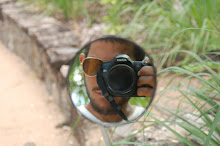
I was convinced that the vuvezela was going to ruin the World Cup. In exasperation I have tried to embrace this poor cousin of the trumpet, fully aware that whether I like it or not, it is going to be a defining feature of this competition. My half-hearted support didn’t last long. Whilst watching countless Bafana Bafana warm-up matches, I was struck at how badly the stadium mood was reflected on screen. The affect of thousands of plastic horns being blown ceaselessly for 90 minutes, in my eyes and ears, killed the atmosphere. The drone doesn’t reflect the ebb and flow of the beautiful game, groans of ‘oooohs’ and ‘aaaahs’ are non-existent with near misses on the field, tribal chanting can’t be heard, and players aren’t publicly judged for a timely tackle or bad pass. Crucially, when a goal is scored, instead of a roar that embodies the unbridled joy of your team going 1-0 up, the same interminable buzz fills your ears. It feels as if nothing special has occurred. Well, that was until this morning.
For days, the South African nation has been primed by a media initiative to ‘Unite behind Bafana Bafana’. What was initially a scheme to build support for the national team by urging companies in the smart Johannesburg business district of Sandton to release employees from their desk at midday, two days before the start of the World Cup, and blow their vuvezela’s on the street, has snowballed. Soon the South African FA had capitalised on the idea, by organising an open top bus for the football squad, so the public can give them a send off. What transpired was a carnival atmosphere, as tens of thousands donned their football shirts and makarapa helmets, and blew their vuvezela’s as the team bus edged through the thronging sea of yellow and green.
Throughout the country, for those that couldn’t make it to Sandton, spilling onto the streets in front of their workplaces for an impromptu street party had to suffice. The very sensible city centre of Pretoria, the capital city and seat of government, briefly lost itself in World Cup euphoria. For 30 minutes the pavement outside the austere office of the South African Revenue Service became awash with colour and sound as government accountants went absolutely bananas. You can imagine the ‘tax-man’ minimising his excel spreadsheet, swapping shirt and tie for a football jersey, donning comedy afro-wigs in national colours, picking up his vuvezela and calmly heading to the door in anticipation.
The build-up to midday on the streets in Pretoria wasn’t palpable, but one could sense that something was going to kick off. A few misplaced car horns being beeped, the distant sound of a vuvezela being blown, and the streets becoming busier. As midday ticked over, the party began. A symphony of tooting as the beeps of vehicle’s and vuvezela’s combined to create a festive feel. Flag waving and unified dancing as a troop of similarly clad professors from a nearby University of South Africa building conga’d into the throng. The ubiquitous lunchtime traffic jams joined the party, and transformed their honks of frustration into honks of jubilation.
As quickly as it started, it ended. By 12.31 only two bewigged accountants were lingering by the metal detectors at the door, abandoned by their colleagues who had diligently returned to tax-returns and calculators. One of them, a middle aged and elated gentleman named Nbako insisted that Bafana Bafana would be raising the World Cup on July 11th. It is unlikely that his optimism will be realised, but with only hours to go till the opening match, South Africa’s World Cup build up has reached fever pitch. Buoyed by a strong win against Denmark last Saturday, the nation seems more inclined to stand behind a previously unrated team.
The Vuvezela was integral to the party atmosphere. Instead of isolating football purists, the Vuvezela encourages a collective inclusiveness by creating an orchestra that anyone can join. All you need is a cheap plastic trumpet and Dizzy Gillespie’s lungs. Walking through the streets, horn in hand, it is easy to break down the natural barriers that exist between strangers. Tooting in response to a blast from a passer-by has become a primal method of communication and identification, a form of saying ‘welcome to our country’.
The national broadcaster SABC’s tag line for the World Cup is ‘feel it, it is here’. The tremors of the blaring Vuvezela’s mean that you can feel it, as it most definitely is here.

No comments:
Post a Comment